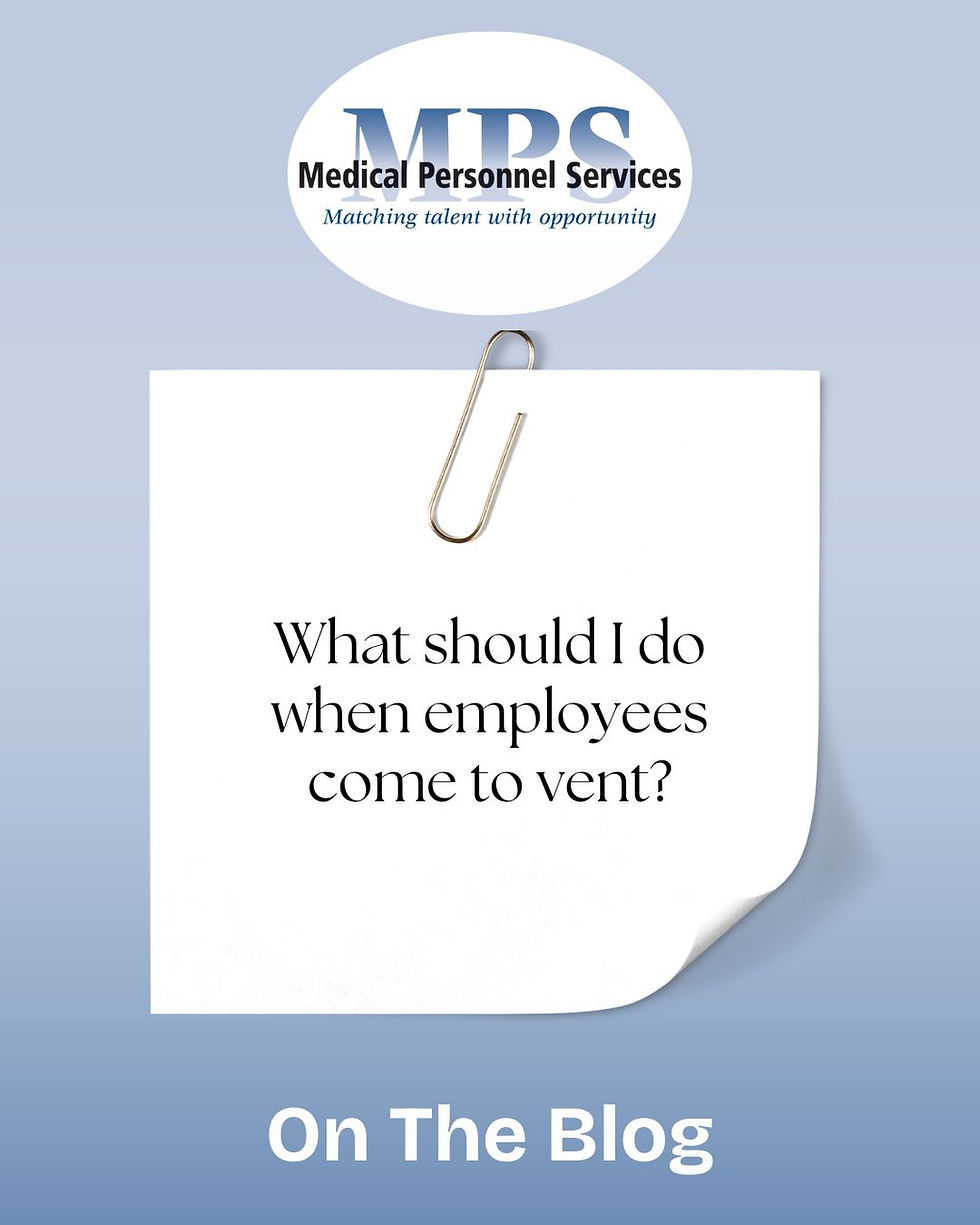What should I do when employees come to vent?
- kevin84036
- Jun 17
- 2 min read

When an employee vents, they are often looking for validation, understanding or support. A key part of managing these moments is actively listening, or truly hearing what the employee is saying without judgment or interruption.
HR professionals and managers should demonstrate empathy by acknowledging the employee’s feelings and reflecting on what they’ve heard. Management should reassure the employee that what they say will remain confidential (if able to) and that they are a safe space. Phrases like “That sounds really challenging,” or, “I can understand why you’d feel that way” can go a long way in building trust.
Empathy doesn’t mean agreement, nor does it mean promising action on every complaint. It’s about creating a space where employees feel safe expressing concerns without fear of retaliation or dismissal.
While it’s important to be receptive, HR must also be aware of the potential legal risks that can arise during these conversations. Venting can sometimes reveal claims of harassment, discrimination, retaliation or other misconduct. Ignoring such disclosures- or, failing to document and follow up on claims- can expose the organization to liability.
MyHRConcierge Senior HR Consultant Emily Frederick, SHRM-CP, noted that in these instances (harassment, discrimination, etc.), even if the employee specifically requests that nothing be done in fear of it “making matters worse”, HR professionals must know that there are some circumstances where you’ll have to do something about the situation, whether that be documenting, investigating or reporting.
To protect the organization in cases of employee venting:
Listen carefully for red flags or potential policy violations.
Document the conversation factually, noting the date, context and any next steps.
Investigate or escalate issues, when necessary, in accordance with company policy.
Maintain confidentiality within the boundaries of the law and company policy.




Comments